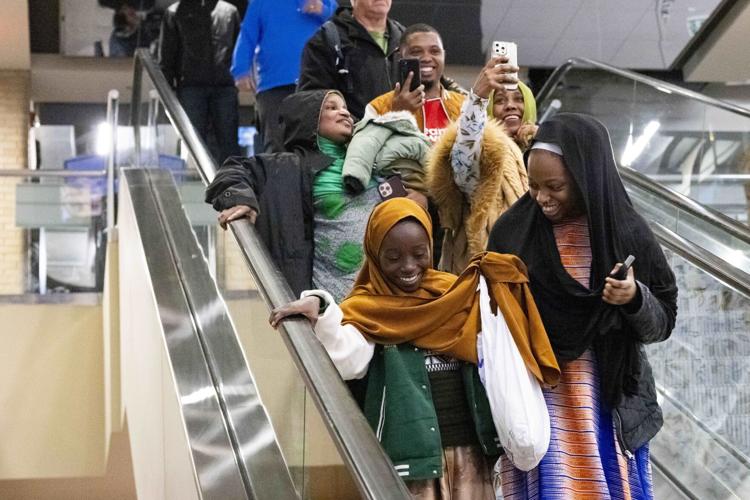
Omaha.com | Omaha refugee agencies hurry to resettle people before Trump takes office
Chris Burbach, Dec 15, 2024
Original Omaha.com article
Late one night last week, a group of Omaha teenage girls were waiting with aunts and uncles in an Eppley Airfield concourse when the people they longed to see finally appeared amid a line of travelers from Chicago.
Travel weariness and bleariness, meet sunshiny joy.
“There they are!” someone in the Omaha group shouted.
The girls and their aunts hurried forward. Their many-colored long dresses rippled as they dodged other passengers to reach their long-awaited relatives: a Somali mother and father with their four daughters and toddler son coming from a refugee camp in
Kenya.
The father, 32-year-old Ali Mohamed Lujendo, had lived in the camp since fleeing from Somali civil war in 2005. He and Maaka Ali Mungara met and married in the camp. Their children were born there.
Much hugging ensued in the airport amid dancing, laughter and exclamations of a Swahili word for welcome.
“Karibu! Karibu!”
The Omaha girls wrapped their arms around their cousins. An auntie hoisted the sleepy toddler onto her shoulder. She held him tight.
Most of the Omaha family had come to Nebraska years ago as refugees themselves, although some were born here. They joined refugee resettlement workers in greeting the family of seven at the airport Wednesday night.
The welcoming was a variation of a scene that’s been happening often at Eppley lately. Local resettlement agencies in Omaha are hurrying to take in as many people as possible before President-elect Donald Trump takes office Jan. 20. They’ve put out calls for volunteers to help the newcomers.
Agency leaders and advocates in Omaha, like those across the nation, are expecting Trump will severely restrict resettlements like these.
One agency alone, the Center for Immigrant and Refugee Advancement, has committed to settle 300 people in Omaha from October through Jan. 1. The nonprofit had welcomed more than 170 of them by Friday.
The two other resettlement agencies in Omaha are planning to welcome about 200 people combined in the same period, slightly more than they expected to place.
“We are gearing up, because during the last Trump administration, there were a lot of refugees who were in the pipeline who were not able to come,” said Tanya DeWolf, director of refugee services at the Center for Immigrant and Refugee Advancement.
If resettlement is paused, it will mean people who have almost completed the process may have to wait years longer to come to the United States, or never make it at all, said Hannah Vlach, executive director of Restoring Dignity. Her nonprofit helps refugees who have come to Omaha.
The first Trump administration cut U.S. refugee limits to record lows, including to 15,000 in 2020. Previous Republican and Democratic administrations had set the cap at about 70,000 a year, according to the Washington Post. After President Joe Biden
ramped up the program and raised the cap to 125,000, about 100,000 refugees were resettled in the United States in fiscal 2024, which ended in October.
The people who are coming have been thoroughly vetted by U.S. officials, resettlement agency leaders said. The refugees have undergone security, health and other screenings. They just need a safe place to go in a community that’s willing and able to take them in.
“The mission of bringing in refugees is way more than the political game that it sounds like,” DeWolf said. “It is very much not only a humanitarian mission, but also a personal one to us.”
Many of her staff are former refugees who have been through the process themselves and know what’s it like. Some have relatives waiting to come.
“It pulls us in to bringing in as many as we can,” DeWolf said.
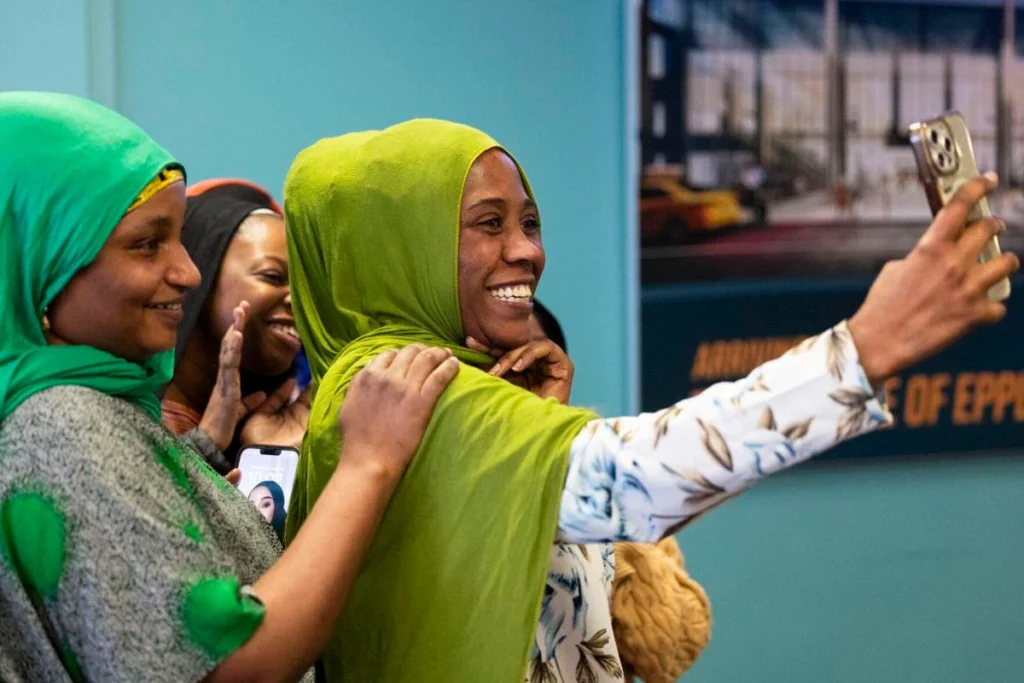
Volunteers needed to handle maximum pace of resettlement
The U.S. State Department asked agencies in October to commit to a maximum number of people that they could resettle through January, DeWolf said. She settled on 300 after consulting with her staff and people in the community.
Lutheran Family Services committed to bringing 120 people combined to Omaha, Council Bluffs, Lincoln and Lexington. That’s as many as their staff and the communities where they settle people had the capacity to help after two very busy years, said Nizar Rasho, an assistant vice president overseeing refugee services.
“In the last year, fiscal 2024, we resettled 1,296 people,” Rasho said. “That’s the largest we’ve ever done.” He said the state refugee coordinator cautioned against going over Nebraska’s
capacity. CHI Health officials asked Lutheran Family Services not to accept any medically fragile refugees because of capacity concerns, Rasho said.
The International Council for Refugees and Immigrants committed to bringing 65 people.
The Center for Immigrant and Refugee Advancement had brought 140 people in September, then a 1-month record for the agency, DeWolf said. It’s a challenge, she said. But the 34-person staff believes it can handle finding and setting up homes for
people; orienting them to their homes, bus lines and schools; start them learning English, if need be, and finding them jobs.
The resettlement groups and several other organizations that help refugees and immigrants are also seeking volunteers to help with a variety of tasks.
The commitment to resettle 300 people so quickly raised some eyebrows, DeWolf said. People in the service community expressed concerns about housing, employment, English classes and agency staff’s own mental health, she said.
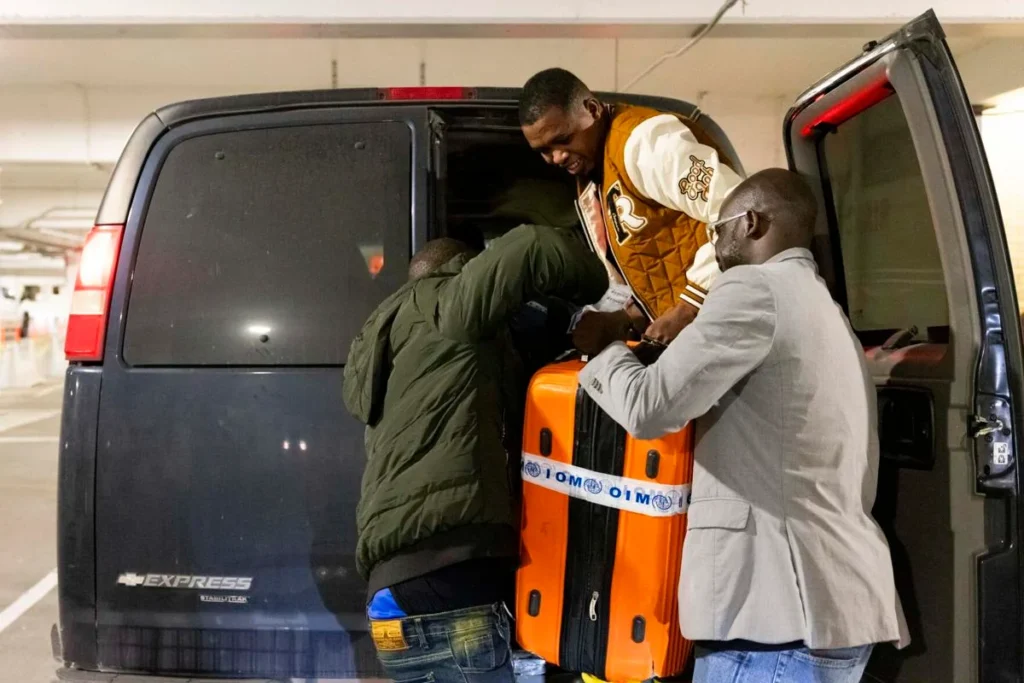
“I’ve been very happy that people are concerned about these things, because we want to make sure, obviously, that when our refugees are resettling here it’s with quality as well,” DeWolf said. “We don’t want to bring somebody and then have them fail.”
She said more help is needed in all those areas of concern. But she said more help has arisen, too. For example, she said, Christ Community Church increased its adult English language classes for refugees and has begun providing transportation to the
classes. While DeWolf’s agency has been reaching out to additional landlords, places like the Colonial Apartments that have rented to refugees for many years are continuing to do so.
As for employment, refugees and immigrants fill job shortages in key Nebraska industries, particularly in meatpacking plants and other factory labor, DeWolf said.
Many of Nebraska’s open jobs are for more skilled workers, she said.
“Employment, now that is one that I’m going to admit has been a little bit more challenging,” DeWolf said. “We have not really had the time, in the last four years that resettlement just bloomed so much, to adjust from just approaching those more traditional employers like meatpacking and production and going into some of the more skilled workforce.”
She urged employers looking for workers to contact her agency.
“We want to make sure that people are really getting into the kind of careers that they had really hoped to be able to get into, and start getting them into the right education channels as well,” DeWolf said. “Yes, we’re doing a big push to get as many people as
possible resettled by Jan. 20, but we’re going to have a lot of work to do after Jan. 20 as well, making sure that the refugees who are in Omaha really are able to be successful in the ways that they had hoped for before wars tore them apart, or whatever brought them here.”
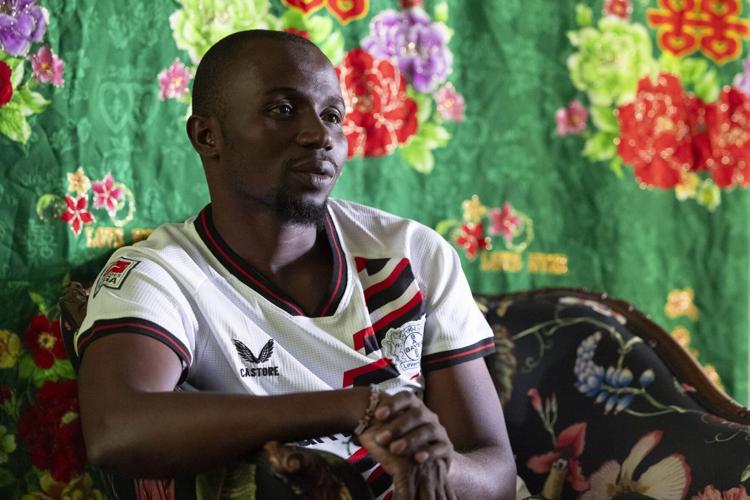
The refugee road to Omaha
The long road that led Ali Mohamed Lujendo and his family to Omaha began in a suburb of Kismayo, Somalia, when he was a teenager. There was no effective police force or any substantial government. Armed extortionists killed Lujendo’s father, a teacher and mechanical engineer, Lujendo said in an interview Friday.
He spoke in English, one of his five languages. The others are Zigua, his native tongue; May May; Somali and Swahili.
Lujendo and his mother were separated as they fled. He and an uncle eventually made their way across the border to Kenya to one refugee camp, and then moved to Kakuma camp. There, he went to school with help from relatives in Omaha and elsewhere abroad,
and from the community in Kakuma. He studied from middle school through the first year of college, when he had to stop to support his family.
“With my family background — my mother was a teacher, and my father also was a teacher — that’s whereby I pick my dreams from…. You can’t be a teacher if you can’t go to school,” he said.
Lujendo worked as an interpreter for the United Nations. Again with help from family abroad and the community in Kakuma, he opened a small business. He hopes to go into business someday in the United States.
Lujendo first had approval to come to the United States in 2016. Just as he was about to leave, he learned his ID had expired. In 2017, he was cleared and ready to go again. But then Trump imposed the so-called Muslim ban that prohibited travel to the U.S. from several countries, including Somalia.
All my kids, they were crying,” Lujendo said. “I told them, be patient, our time will come.”
In Kakuma, his 4-year-old daughter, Ilhan, made up a little song and sang it over and over.
“The only kind of song she was having was, ‘We’re going to America,’” her father said.
When the pilot announced “Welcome to Chicago” and then his cousins met his family at the Omaha airport, Lujendo realized it was real.
“I was so excited and very happy and said, ‘Wow, my dreams have come true,’” he said. “I’m now in the U.S.A.”
He knows challenges await, he said. He knows he and his family have adjustments to make. The cold weather that greeted them is just the beginning. But he believes they will make it. And they have help.
As caseworker Adam Haroon Abdella loaded a van in the Eppley garage to take the family to their apartment Wednesday night, Northwest High School senior Rahma Abdikadir wrapped her scarf around her newly met niece, 11-year-old Husna Ali, for
warmth. Husna smiled.
“She’s a little cold,” Rahma said. “She’s not used to this. But she’ll adjust. She has a big family to help her.”
chris.burbach@owh.com,
402-444-1057
twitter.com/CHRISBURBACH
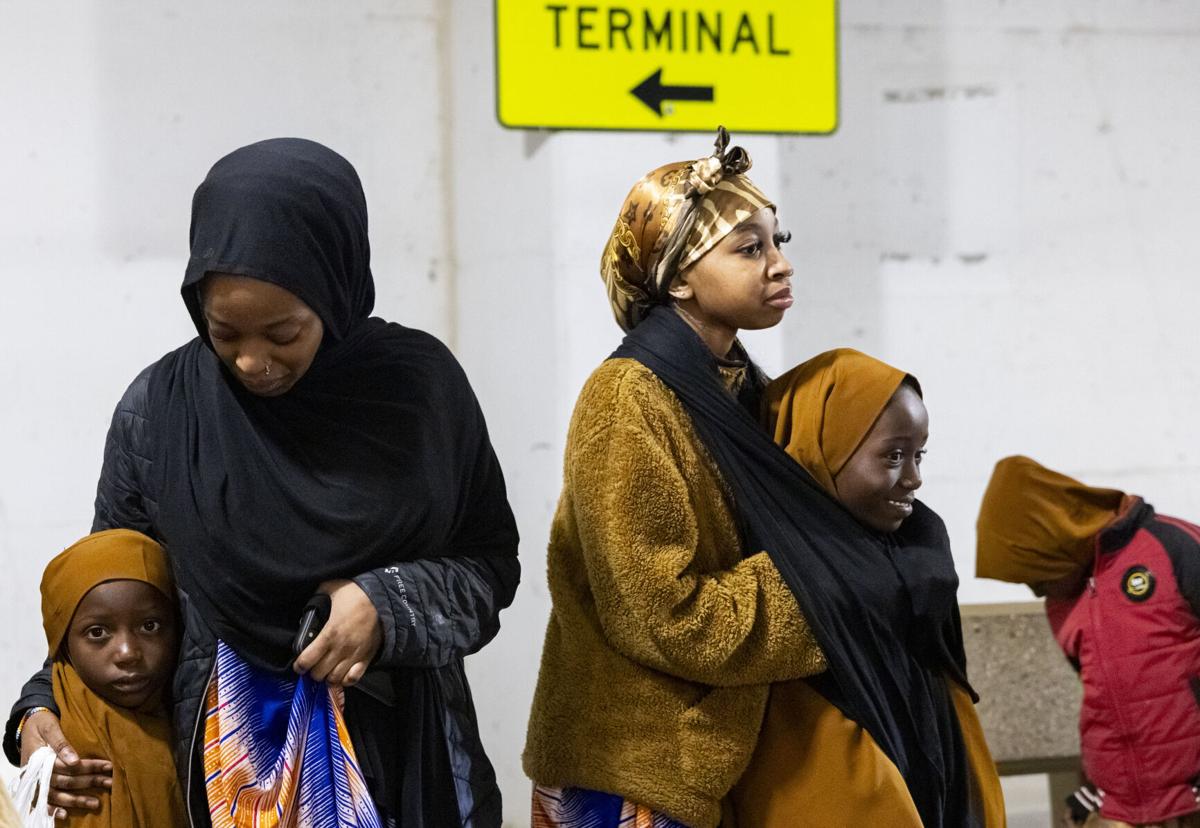

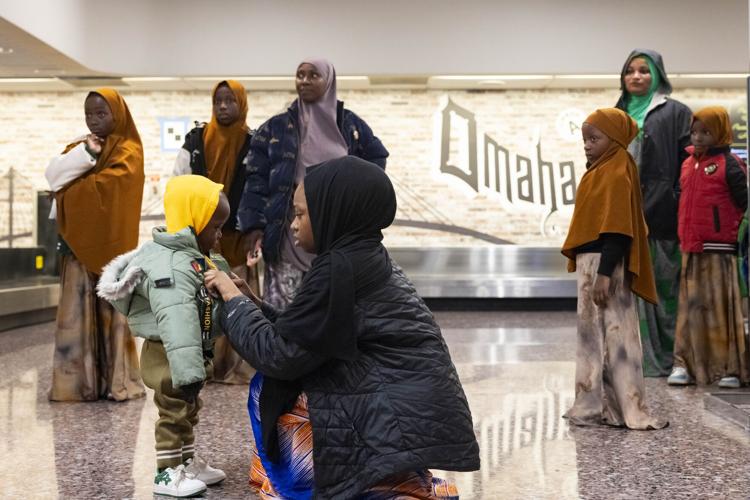
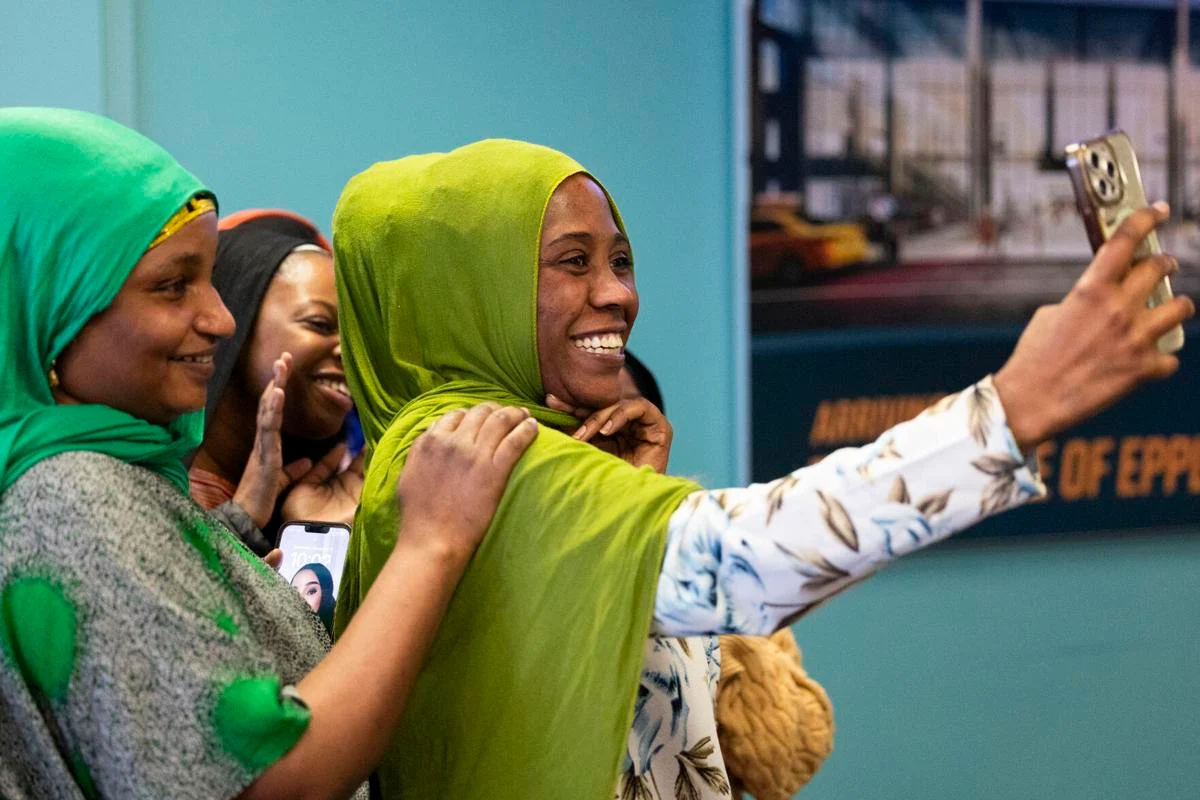
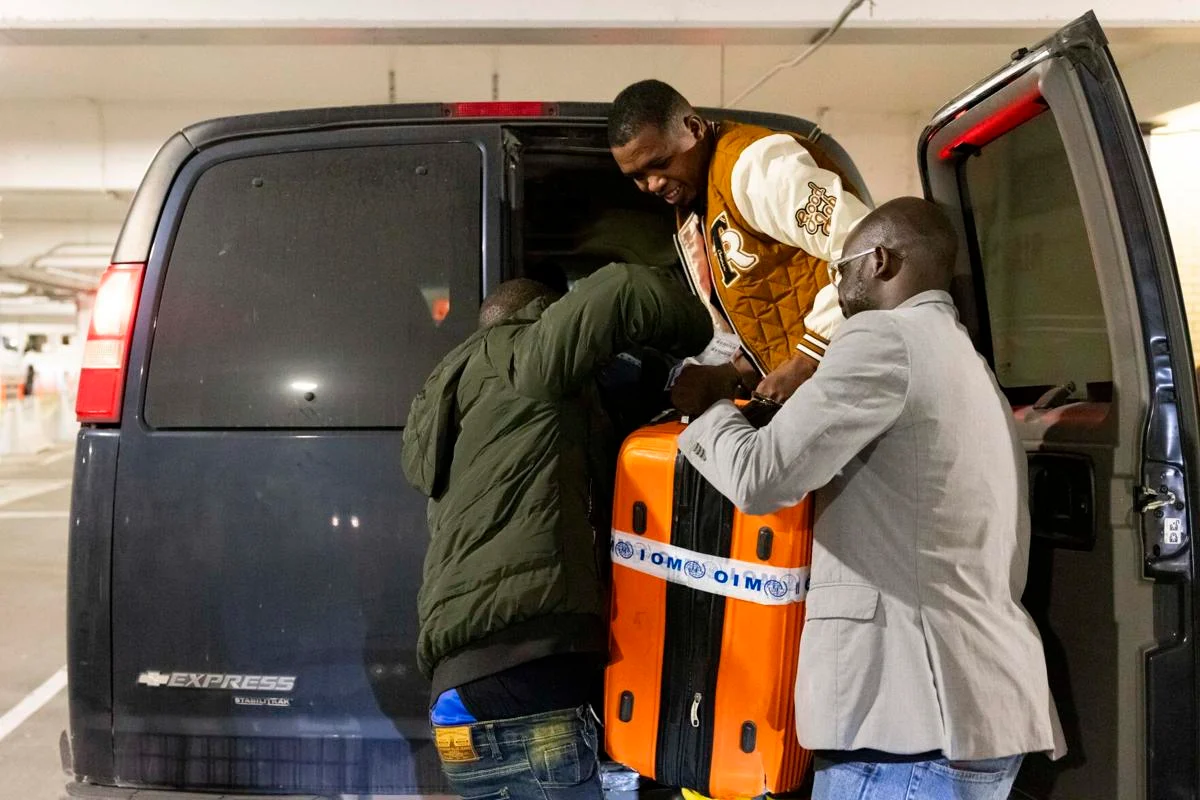
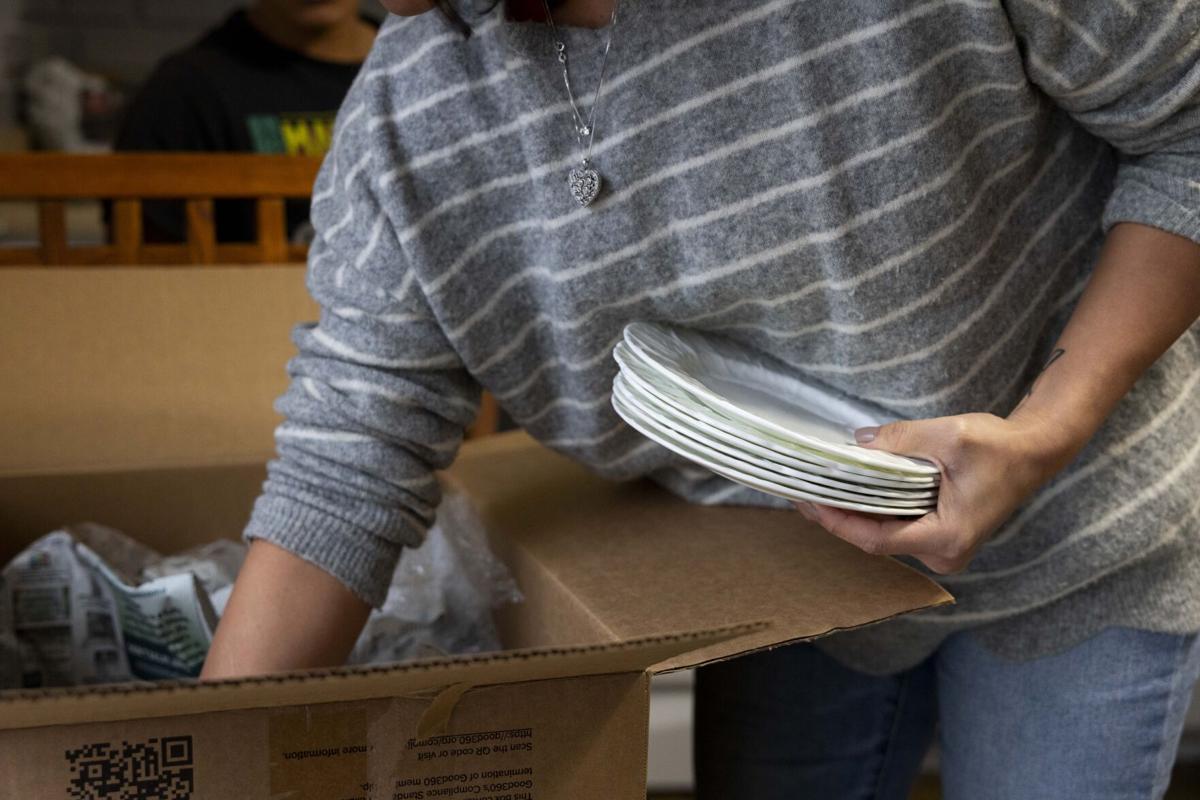
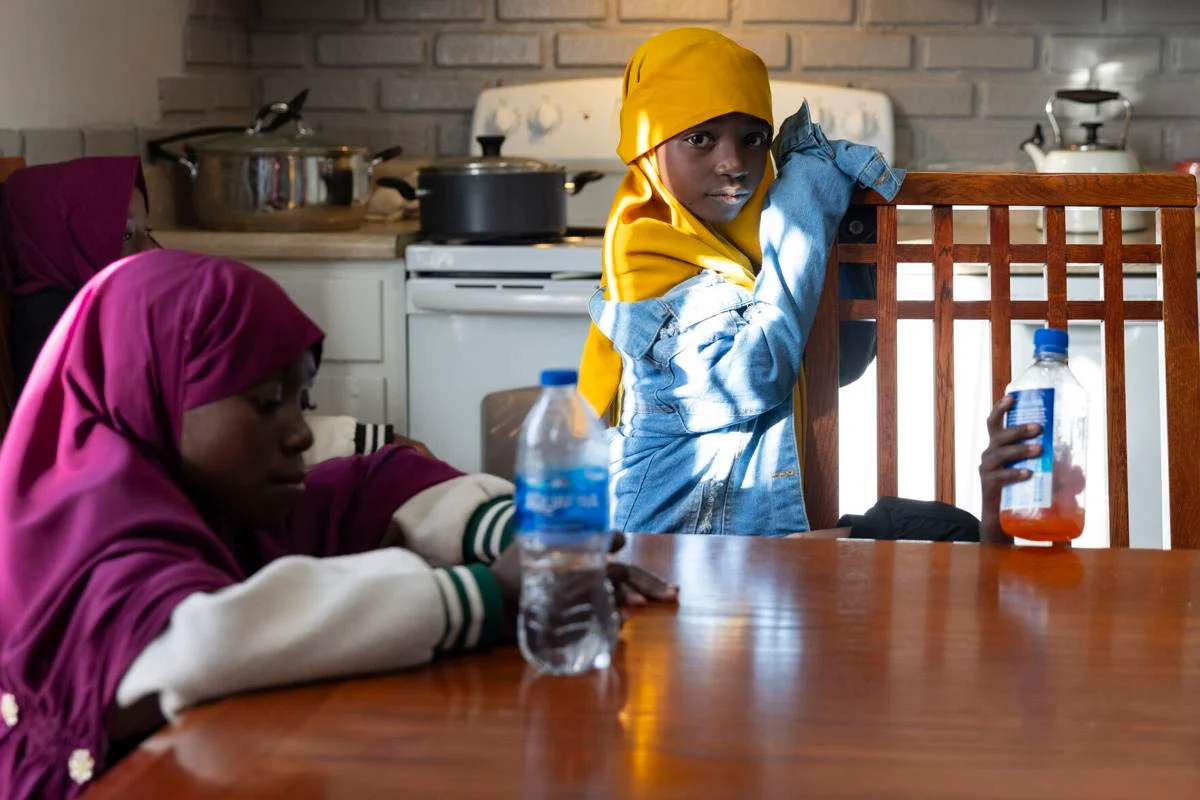
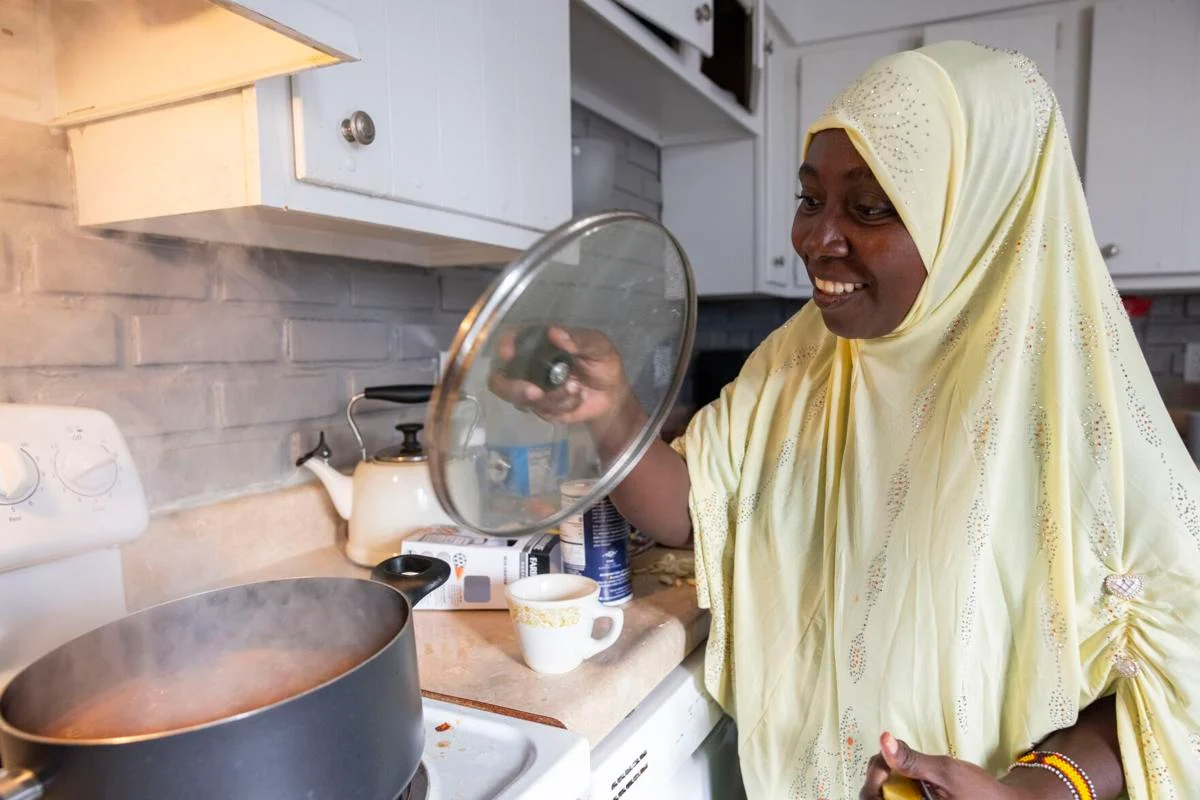

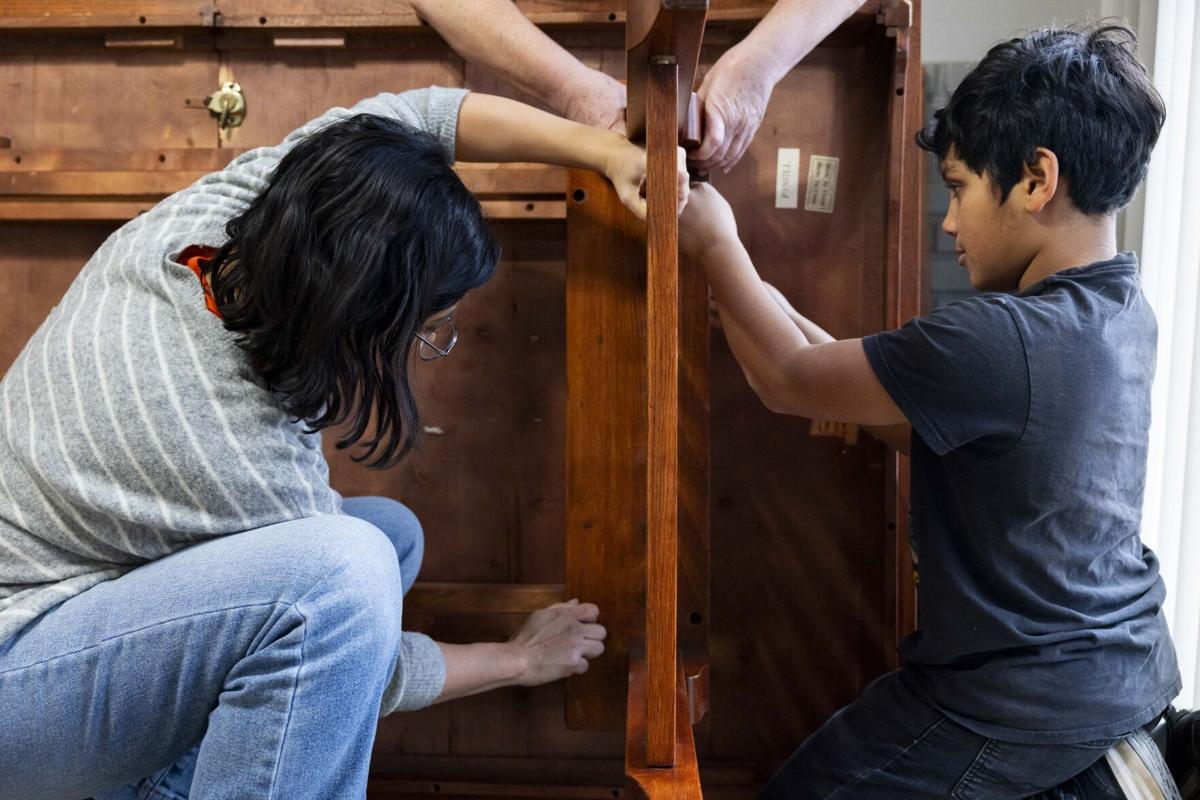
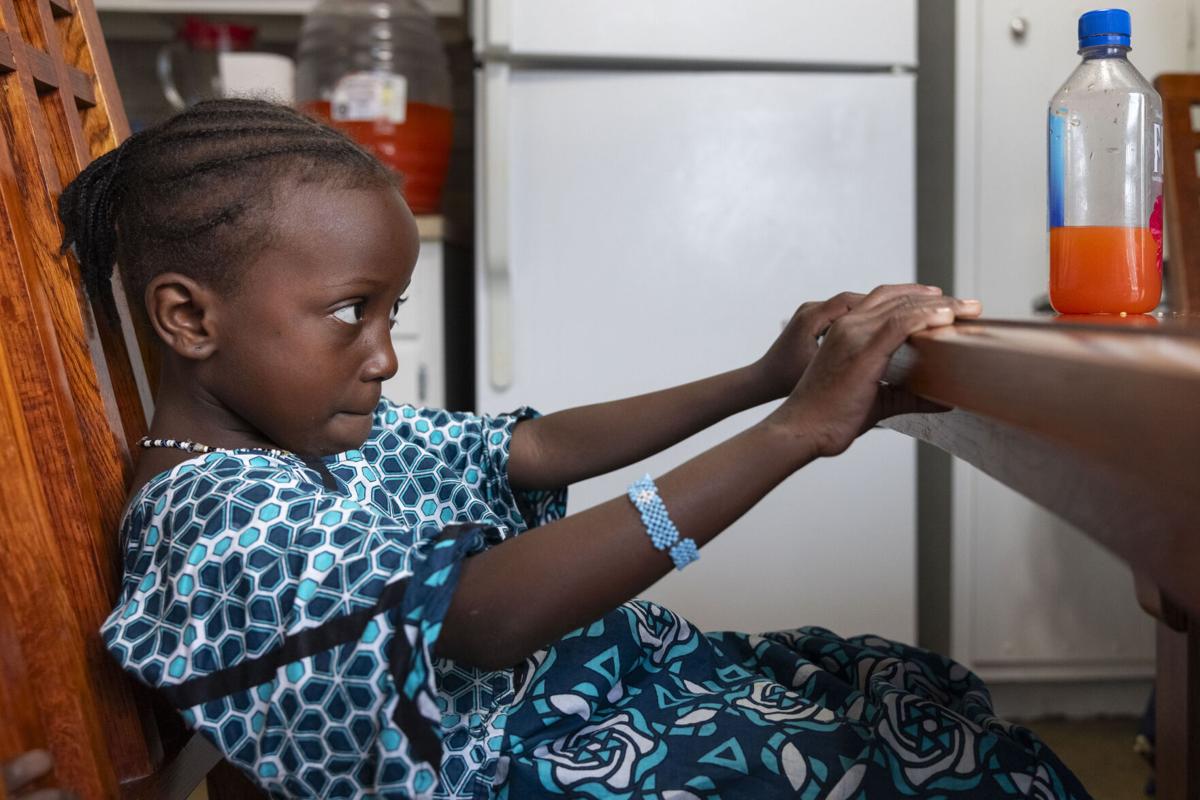
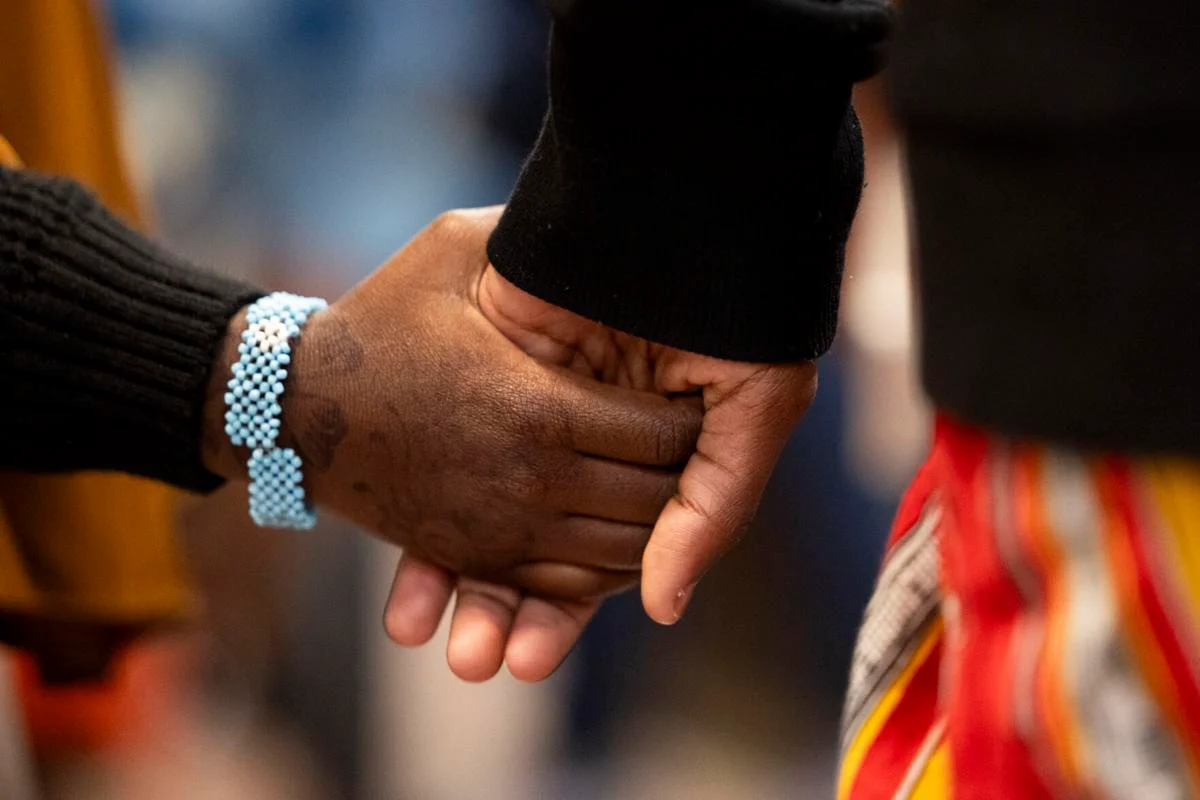
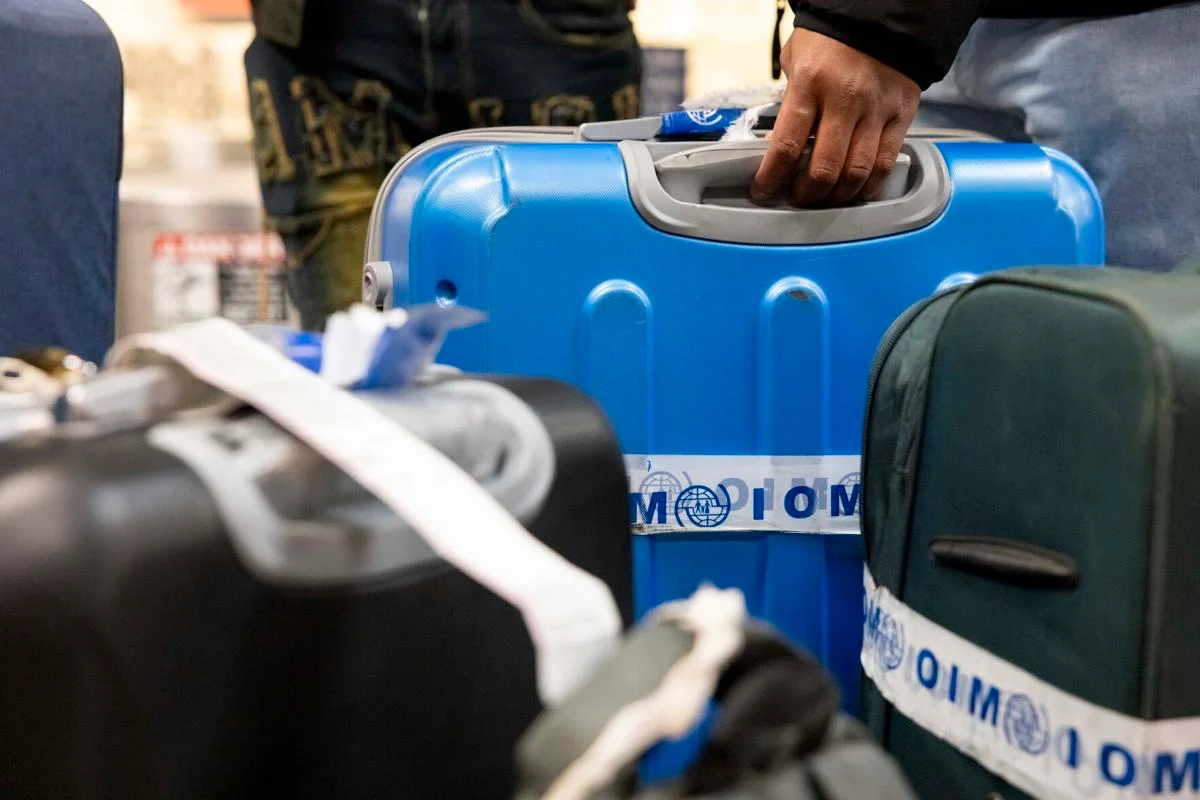

To empower immigrants and refugees to live confidently through high-quality legal representation, resettlement, and social work and to create welcoming communities through education and advocacy.
Quick links
Newsletter sign-up
We are a 501c3 nonprofit. Our EIN number is 74-3195841. The information contained in this website is provided for informational purposes only and should not be construed as legal advice on any matter.
Copyright © 2024 Rometheme. All Rights Reserved.